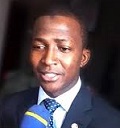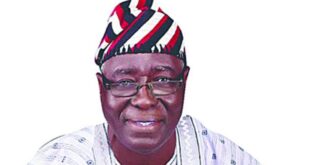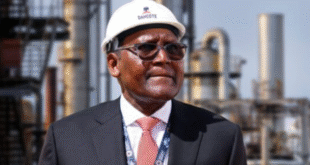…Reveals $450m Lost, 80% of Stolen Funds Recovered in Landmark Corruption Probe
Former Chairman of the Economic and Financial Crimes Commission (EFCC), Abdulrasheed Bawa, has made a startling revelation that Nigerian law enforcement agencies were among those who profited from the country’s infamous oil subsidy fraud, which spanned from 2006 to 2012.
Speaking on Arise Television’s Prime Time on Monday, June 30, 2025, Bawa stated that security and enforcement bodies, expected to safeguard public resources, were instead complicit in the massive fraud.
His claims are detailed in his newly released book, “The Shadow of Loot & Losses: Uncovering Nigeria’s Petroleum Subsidy Fraud.”
According to Bawa, Nigeria lost a staggering $450 million through the now-defunct Petroleum Support Fund (PSF) during the six-year period. While oil marketers were central players in the scheme, he emphasized that the corruption extended into state institutions meant to enforce accountability.
“Everybody was benefitting from the scale and the scam — including law enforcement. People can be compromised to look the other way. It’s a general thing”, Bawa said.
Despite the widespread rot, the former EFCC boss disclosed that the commission managed to recover 80% of the stolen funds, and several indicted marketers were prosecuted and jailed – an achievement he described as rare in Nigeria’s anti-corruption efforts.
Bawa also pushed back against the widely held international view that recovered loots in Nigeria are often misappropriated by the same system that retrieves them – a phenomenon commonly referred to as “relooting the loot.”
“This idea of ‘relooting the loot’ shouldn’t be discussed against us as a country. Nigerians and non-Nigerians should be able to trust in our leaders”, he said.
He further expressed concern that many Nigerians have internalized these negative perceptions from the international community, allowing them to shape national identity and public discourse.
“It has now become like a norm among us Nigerians to take in what the international community perceives us to be”, Bawa added.
On the recurring pattern of EFCC chairpersons exiting under a cloud of suspicion, Bawa dismissed notions of political persecution but acknowledged that it has become a trend requiring context.
“It’s just a phase that has to come and go. People always talk. Whether you’re telling the truth or not, people will say something”, he noted.
Bawa served as EFCC Chairman from 2021 until his suspension by President Bola Tinubu in June 2023 over allegations of abuse of office. He was detained by the Department of State Services (DSS) for several months and released in October 2023.
The Nigerian fuel subsidy regime – particularly under the PSF – has long been considered one of the most opaque and corruption-prone sectors in the nation’s economic history. Previous investigations, including those by the National Assembly, revealed a pattern of inflated fuel import claims and falsified subsidy payments involving top oil marketers and government officials.
With Bawa’s firsthand account now public, the revelations are likely to reignite calls for deeper institutional reforms and enhanced transparency in Nigeria’s oil and gas sector – and perhaps, a renewed national reckoning on systemic corruption.
 Startrend International Magazine For Your Latest News And Entertainment Gists
Startrend International Magazine For Your Latest News And Entertainment Gists





